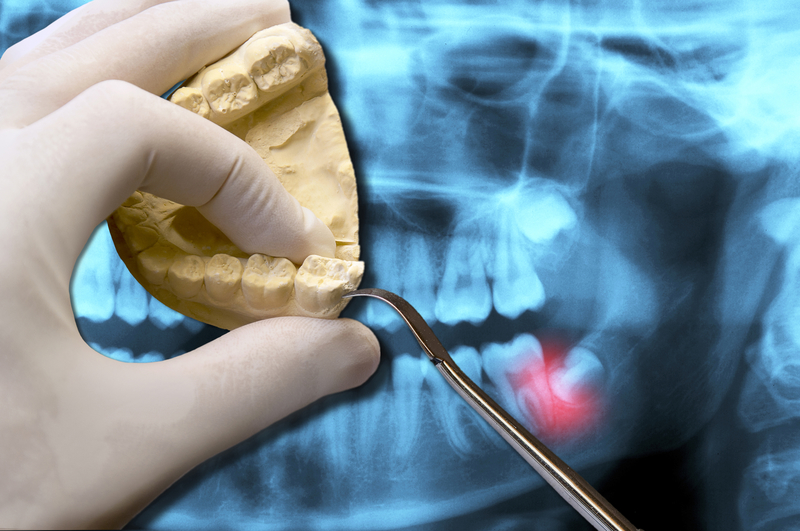Wisdom teeth, also called the third molars, generally wait to erupt until the late teens or early 20s. Because they take so long to erupt, they are known for taking people by surprise and causing all kinds of problems. Here are some ways to reduce the risk of your wisdom teeth causing you issues later on.
Have Them Removed
If you see your dentist regularly your wisdom teeth won’t take you by surprise. Your dentist will watch their progress as they begin to rise and let you know if there is room for them or if they need to be removed. If your dentist recommends extraction, take action as soon as possible. They know if you are at risk for severe overcrowding to occur as your wisdom teeth erupt. Waiting too long after your dentist’s recommendation could cause complications with the extraction process.
Wear a Retainer After Braces
If you have had braces or Invisalign, you will need to wear your retainer for the rest of your life. One of the reasons for this is to protect your teeth from any movement caused by your wisdom teeth. Your retainer can help make sure wisdom teeth don’t crowd your other teeth.
How often you need to wear your retainer will depend on your particular orthodontic treatment. Be sure to follow your orthodontist’s instructions religiously.
Follow Aftercare Instructions
Complications after your wisdom teeth removal are relatively common. Dry socket is one example: Dry socket is a painful condition that happens when a blood clot fails to form over the exposed bone. This usually occurs between 3-5 days after your extraction. Other risks include infection, excessive bleeding, and injury to the nerves near the extraction site. Following your aftercare instructions greatly reduces your chances of complications occurring. Most importantly, avoid touching or agitating the surgery site and keep the wound clean through frequent gentle water rinses. It is recommended that you eat soft foods and avoid drinking out of a straw. Ice compresses held to your outer cheek can reduce your swelling.
You don’t want your wisdom teeth to come in and wreak havoc on your pearly whites! It is also important to do all you can to foster healing if you have them extracted. The best way to stay on top of your oral health is to visit your dentist two times per year. They can keep an eye on your wisdom teeth and let you know when action is needed.
Did you enjoy this article? Here’s more to read: How to Prepare Before Undergoing a Dental Procedure



